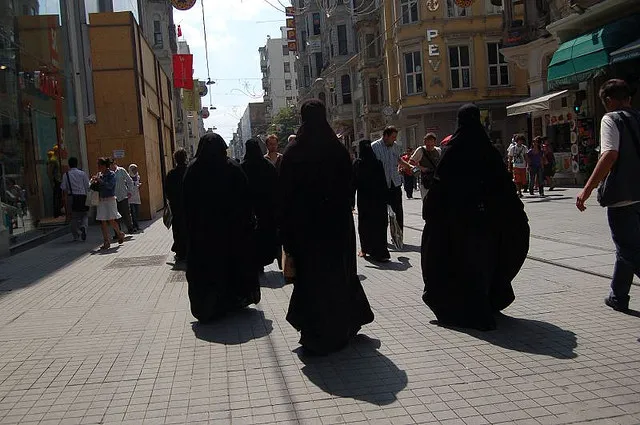Sometimes, women have to do things they never thought they would in order to navigate and survive the misogynistic societies in which they live. The New York Times today has a stunning profile of three Muslim women from Syria, each formerly a member of ISIS’ all-female Khansaa Brigade, the morality police.
Before ISIS took control in Syria, Raqqua was a place in which women like Aws, Dua, and Asma (all pseudonyms for the Times piece) – all in their 20s – could have more independence than previous generations. Judging by what they shared with the Times of their pre-ISIS lives, they were your typical young adults in love with pop culture, makeup, books, and hanging out with friends:
All three belonged to a generation of Syrian women who were leading more independent lives than ever before. They mixed freely with young men, socializing and studying together in a religiously diverse city with relatively relaxed mores.
Many young women dressed in what they call sport style, baring their knees and arms in the summer and wearing makeup. And while Raqqua’s more conservative residents wore abayas and veils, women were going to college in greater numbers and getting married later. Most men and women chose their own spouses.
When ISIS took over, however, all that changed in an instant. Aws, Dua, and Asma were “among the lucky ones” that were given the choice to barter their lives in exchange for work for and marriage into ISIS in a place where the native Syrians were increasingly treated like second-class citizens in favor of Iraqis swarming into Raqqua answering the jihadist call.
And so, while none of them subscribed to ISIS’ ideology, in an effort to stay alive and ensure their families’ survival, they married and joined up. They were then put in the horrible position of having to inflict punishments onto their friends or other acquaintances in the city. People with whom they’d grown up were now “offenders.” At the time, they felt that the choice they made was the right one. However, their lives became increasingly horrific under the new regime, until each of them finally decided that fleeing the country was the only way to save their lives, and they became refugees.
Eventually, all three settled in Turkey, which is where the New York Times found and interviewed them for this compelling piece.
Check it out when you’re ready for a good, long read. It serves as a reminder that whatever most Americans think of Islam or “the Middle East” is at best, partially inaccurate, and at worst, completely wrong. These women were Syrians and Muslims long before ISIS, and they didn’t feel oppressed by their religion. The oppression came from outside their community. From people calling themselves Muslims while using religion to claw onto and maintain power. And who knows what would’ve happened to these women had they not been able to find asylum in Turkey?
When we talk about things like refugees, it’s things like this that we should remember.
(Image via tgraham on Flickr)
—Please make note of The Mary Sue’s general comment policy.—
Do you follow The Mary Sue on Twitter, Facebook, Tumblr, Pinterest, & Google +?









Published: Nov 21, 2015 08:00 pm